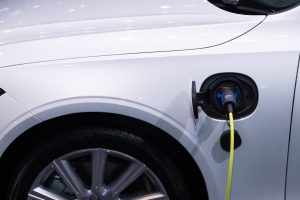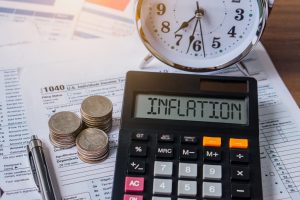The federal government offers tax credits for Americans who purchase energy-saving equipment and improvements.
There are different tax credits available for these types of purchases made for your primary residential home, and also for businesses.
For Your Home
Energy Efficient Home Improvement Credit
The Energy Efficient Home Improvement Credit provides federal tax credits to help offset the cost of energy-efficiency improvements made to your primary residence.
From 2023 through 2032, this credit will equal the lesser of 30% of the cost of qualified improvements or the annual total credit limit of $1,200. The limit increased from 2022, which was capped at a lifetime maximum of $500.
Below is a list of improvements that qualify for this credit, along with the maximum annual credit that can be claimed for each improvement.
- Exterior doors – $250 per door (up to $500)
- Exterior windows and skylights – $600
- Insulation and air sealing materials or systems – No limit (other than the total $1,200 limit)
- Central air conditioners – $600
- Natural gas, propane, or oil water heaters – $600
- Natural gas, propane, or oil furnaces and hot water boilers – $600
- Home energy audits – $150
In addition, the following improvements have a separate credit limit of $2,000, which means it’s possible to claim as much as $3,200 in credits per year:
- Electric or natural gas heat pumps
- Electric or natural gas heat pump water heaters
- Biomass stoves and boilers
Residential Clean Energy Credit
The Residential Clean Energy Credit provides federal tax credits for the purchase of qualified clean energy systems for your primary residence.
From 2022-2032, this credit will equal 30% of the costs of qualified clean energy purchases, with no annual or lifetime limit. The credit will decrease to 26% in 2033 and to 22% in 2035.
The following purchases qualify for this credit:
- Solar electric panels
- Solar water heaters
- Wind turbines
- Geothermal heat pumps
- Fuel cells
- Battery storage
For both the Energy Efficient Home Improvement Credit and the Residential Clean Energy Credit, you can visit the Department of Energy’s Tax Credit Page to see more details on what is required for an improvement or purchase to qualify.
For Your Business
Investment Credit
The Investment Credit provides federal tax credits to businesses that make investments to improve their properties. Included among the qualified expenditures are those related to energy-saving and clean energy. Credits up to 30% of the cost can be claimed for the following:
- Solar energy property
- Geothermal energy property
- Qualified fuel cell property
- Combined heat and power system property
- Qualified small wind energy property
- Waste energy recovery property
- Geothermal heat pump system property
- Qualified microturbine property
- Qualified biogas property
- Microgrid controllers property
For Individuals and Businesses
Besides visiting the Alternative Motor Vehicle Credit IRS Fact Sheet, you should also see the Credits for New Clean Vehicles website.
NOTE: EVs purchased on or after April 2023 come with some critical mineral and battery component requirements to qualify for the credit.
The IRS created this fact sheet to answer FAQs on the topic. And if you’re curious, please read LSL CPA’s April 7, 2023 post on the topic of EVs for some background.
Also, please be aware that while an individual or a business can take the credit, to qualify, you must:
- Buy it for your own use, not for resale
- Use it primarily in the U.S.
Conclusion
The federal energy-saving tax credits are an excellent way to promote energy efficiency and help people save money. By working with a reliable accountant, you can stay informed about energy-saving devices, important deadlines, and critical details to decide which upgrades to prioritize. Much fine print accompanies the rulings, so it’s best to read the IRS laws carefully and consult with your CPA if you have any questions. Also, the laws could change, so it’s not a once-and-done.
If you want to make your home and business more energy-efficient, now is the time to explore your options and take advantage of these valuable tax credits before the year runs out.
Questions? Please contact LSL CPAs. We are excited to help you save the planet while you lower your tax liability at the same time!




